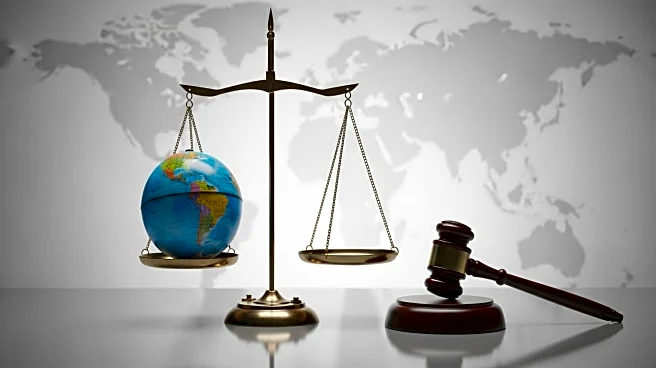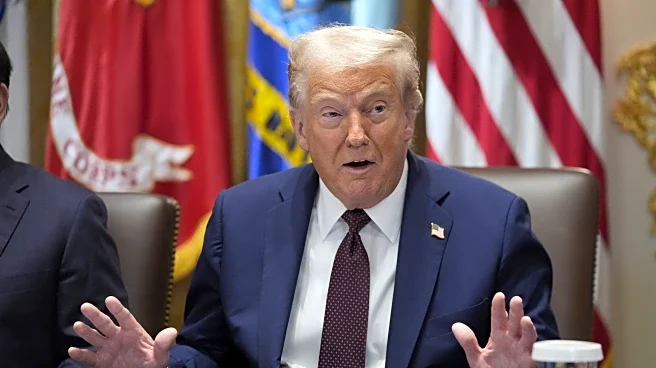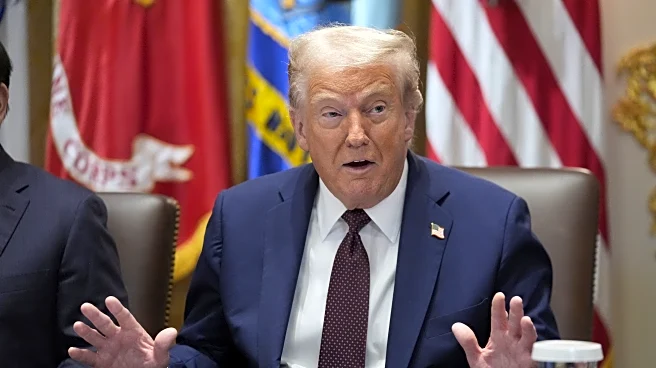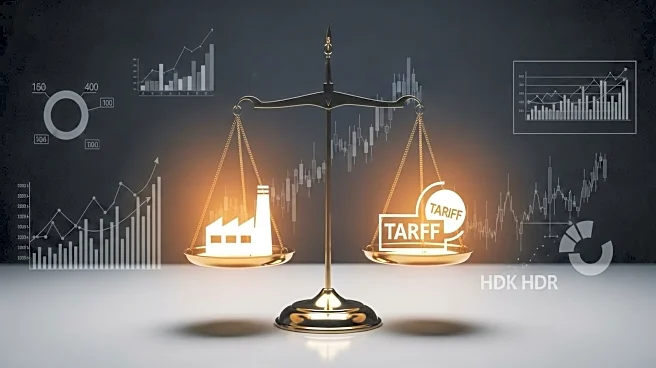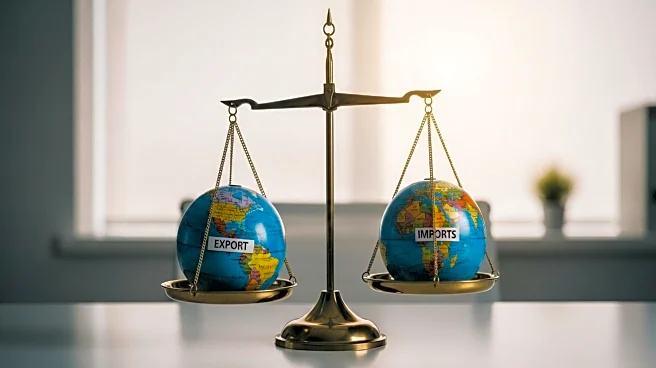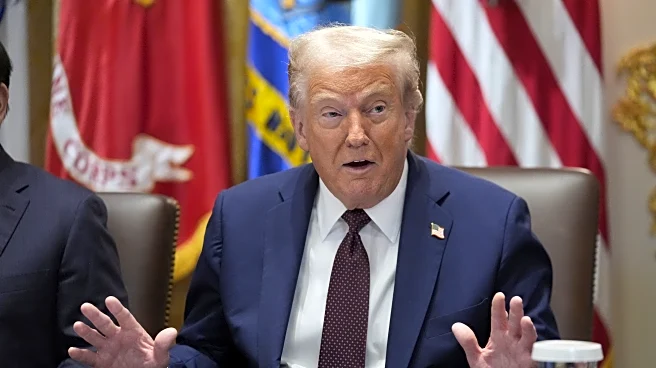What's Happening?
A federal appeals court has ruled that President Trump's global tariffs, imposed through the International Emergency Economic Powers Act (IEEPA), were illegal. The US Court of Appeals for the Federal Circuit upheld a previous decision by the Court of International Trade, stating that Trump exceeded his authority by using IEEPA to impose tariffs, which is a power vested in Congress. Despite the ruling, the tariffs remain in effect while the case proceeds, with the possibility of the Supreme Court being involved for a final decision. The administration has prepared options to pursue additional tariffs through other federal authorities, even amid an expected appeal.
Why It's Important?
The ruling has significant implications for international trade and U.S. economic policy. If the tariffs are ultimately removed, it could disrupt trillions of dollars in global trade and affect Trump's trade deals. The administration may face demands to refund tariffs already paid, impacting businesses and economies worldwide. The decision also highlights the limits of presidential power in imposing tariffs without clear congressional authorization, potentially influencing future trade policy and executive actions.
What's Next?
The case may proceed to the Supreme Court for a final ruling, which could uphold or overturn the tariffs. The administration might also allow the Court of International Trade to revisit the matter first. Meanwhile, officials are exploring other legal avenues to impose tariffs, such as using Section 232 of the Trade Expansion Act. The outcome of this legal battle will be closely watched by stakeholders in international trade and U.S. economic policy.
Beyond the Headlines
The ruling underscores the importance of the 'major questions doctrine,' which requires clear congressional authorization for significant economic and political decisions. This legal concept has been pivotal in recent Supreme Court cases, including those involving former President Biden's policies. The decision may influence how future administrations approach trade policy and emergency powers.
